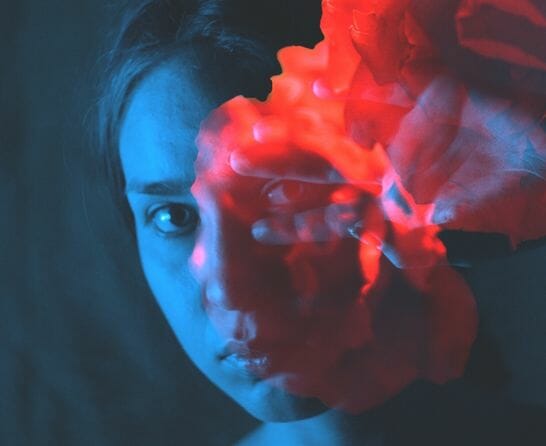Home > Female Body > Menopause and beyond > The Menopause minefield. What to expect.


Ah the Menopause. What do you think about it? What can we expect from menopause? Are you absolutely dreading it, because it means you are heading into middle-age and can no longer have children, do you think of hot flashes, brain fog and insomnia. Or do you think great, bring it on, no more periods, no PMS, no more agonising stomach cramps. Whatever you may think, it will happen to you one day and it is up to you how you chose to deal with it. I personally intend to just get on with it, and hope that I just sail through it. Hmm we’ll see!
But what made me think of the Menopause was just before my 40th birthday (yes I am that old), my GP told me I was going through the Menopause. Well this gave me pause, firstly because at 40 that’s a little young and secondly I wasn’t convinced that I was. Anyhow my GP in her infinite wisdom decided to put me on HRT as I was so young and all, and sent me off for a multitude of blood tests. To cut a long and boring story short, I hated HRT, and it took me forever to get my blood test results, but finally I did, and what a surprise I wasn’t going through the Menopause.
But what surprised me was the minute I was told I was going through the Menopause I had this overwhelming desire to have a child!! Now, I don’t have children, I’ve never really wanted to have children, but the minute I was told I couldn’t have any I panicked. Then I had a word with myself, told myself not to be so ridiculous, and now I’m back on track, loving my life! But I did discover that the Menopause doesn’t bother me in the slightest, its the symptoms and side effects that I am not looking forward to.
Menopause means the end of your menstrual cycle. The ovaries stop releasing an egg every month and you no longer get your period. It is defined as not having had a period for one year. It is caused by the drop in production of estrogen and progesterone. The average age being you early fifties, but can be between the ages of 45 to 55. The symptoms are varied from woman to woman, but the most common seem to be hot flashes. Then there is the Perimenopause which is the years leading up to menopause, when your hormones start to change.
Irregular periods – they can be longer or shorter, lighter or heavier, or you may even miss one altogether
Changes in Mood – Mood swings, irritability, increased risk of depression
Hot flashes – They are very common, and unpredictable. Can be worse at night time. Described as a sudden feeling of heat in your upper body.
Memory problems – The dreaded menopausal brain fog. You will have trouble focusing or become forgetful.
Sleep problems – Difficulty sleeping through the night. You may find it harder to get sleep and then stay asleep through the night.
Depression & Anxiety – Your risk of both is higher around menopause.
These are just some of the most common symptoms of menopause. Others can include painful and stiff joints, increased urination, headaches, palpitations, reduce libido and thinning hair. Some women are lucky to sail through the menopause with no symptoms and other’s can have all of them.
This list of symptoms is what makes most women absolutely dread the menopause, that and it’s a reminder that you are getting older. Oh and did I mention this can go on for years. I always think about how the world would be a different place if it was men who went through all of this instead of women.
So with this long list of symptoms, what can we do to help ourselves through this time. What can we do about it, because we can’t stop it happening.
Firstly I think you have to speak to your doctor, and find out what is going on. I think your age plays a big part in your diagnosis. Treatment will also depend on how severe your symptoms are. Your doctor may try you out on Hormone Replacement Therapy (HRT), which can relieve the symptoms of menopause by replacing the female hormone. But there are many treatments you can try to help alleviate your symptoms.
Exercise and weight management – Women report to gain a little weight during menopause, so eat healthy. Regular exercise can help you sleep better and increase you energy.
Keep your cool – The dreaded hot flashes can be helped by wearing loose layered clothing, keep your bedroom cool especially if you suffer from night sweats.
Talking helps – Talk to your friends and family, and seek out a therapist or counselling if you are struggling with feelings of anxiety, depression or isolation.
Natural supplements – Taking calcium, vitamin D and magnesium along with Black Cohosh can help with hot flashes.
Relaxation – Practise Yoga and meditation will help you relax.
These are just a few suggestions to try. But until you go through it yourself you won’t know how it will feel or what symptoms you may have. If you have symptoms and you are under 40 years old, please go and see your doctor and find out if you are peri menopausal. There are lots of options available to you, and it is always advisable to seek medical advice. But it is always best to to see your GP whatever your age.
What simply amazes me is that Menopause still isn’t talked about as often as it should be. There still seems to be a big mystery surrounding it, and no one can understand what it’s like until there are gong through it themselves. It is such a personal, individual experience, and I’m sure many women feel so alone whilst going through this. So come ladies, let’s talk about it. Let’s share our experiences, problems and issues, we talk about everything else, so why not this.

-


Dr Singh is the Medical Director of the Indiana Sleep Center. His research and clinical practice focuses on the myriad of sleep.

What are PMS and PMDD? Whether you’ve just started your period or have had it for years, you’ve probably experienced some physical symptoms and mood changes before it began. While you may have heard of PMS, most likely not in

Your period: The lowdown When it comes to menstruation, there aren’t different period stages, because your period is actually a part of the follicular phase. If you’re confused, don’t worry; we’ll explain more. For many women, the wording is where

What is hormonal imbalance? It is a simple way to say that your hormone levels are significantly higher or lower than what is expected for your age and the time of testing. Keep in mind that it is not a
Hormona© 2025, All Rights Reserved
Privacy Overview
| Cookie | Duration | Description |
|---|---|---|
| cookielawinfo-checkbox-analytics | 11 months | This cookie is set by GDPR Cookie Consent plugin. The cookie is used to store the user consent for the cookies in the category "Analytics". |
| cookielawinfo-checkbox-functional | 11 months | The cookie is set by GDPR cookie consent to record the user consent for the cookies in the category "Functional". |
| cookielawinfo-checkbox-necessary | 11 months | This cookie is set by GDPR Cookie Consent plugin. The cookies is used to store the user consent for the cookies in the category "Necessary". |
| cookielawinfo-checkbox-others | 11 months | This cookie is set by GDPR Cookie Consent plugin. The cookie is used to store the user consent for the cookies in the category "Other. |
| cookielawinfo-checkbox-performance | 11 months | This cookie is set by GDPR Cookie Consent plugin. The cookie is used to store the user consent for the cookies in the category "Performance". |
| viewed_cookie_policy | 11 months | The cookie is set by the GDPR Cookie Consent plugin and is used to store whether or not user has consented to the use of cookies. It does not store any personal data. |
